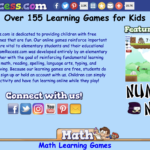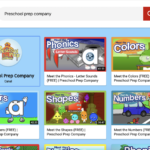It’s morning and with your eyes not yet fully open, you reach over instinctively and pick up your phone. You check the weather, the news and then find yourself scrolling through emails. Even before you’re out of bed, the energy of the night’s sleep is spent to brace yourself against the scary news you’ve read and the day’s to-dos. You remind yourself never to do this again but we all know that’s wishful thinking.
Helping Kids Do What We Wish We Could Do
Many of us have developed digital habits that we know don’t serve us well. But here’s the shocker. There are kiddie versions of doomscrolling and losing yourself in 30 mins (okay, 1.5 hrs) on FaceBook, TikTok or YouTube each day. Just how many times must your little one watch Baby shark to absorb everything about the shark family! Other baby animals want to introduce their families too!
The trouble with habits is once formed, they are hard to break. But we can be comforted that even if we’ve given up on helping ourselves, we are still able to help our kids. We strive to help them eat healthier than we. We can strive to help them be better than us in their digital diets too. Here are some ways to get started.
Model the Relationship with Digital You Want Your Kids to Have
As hard as it may be, don’t pull out your phone every spare minute you have and try not to allow notification dings to rule you. In your own way, show your kids that you’re the boss of your phone – it’s a tool you use – and not the other way round. Yes, this is incredibly hard. Here’s a hack – wait till the kids are in bed to give in and indulge uncontrollably.
Manage the Quality of Their Screen Time and Not Just Quantity
Screen time is like sugar – it’s bound to creep into their diet, so use your energies to manage the quality. With benefits for learning and arousing curiosity, at some points, lack of quality screen time may be damaging. The plan can’t be total abstinence. Just like we slowly introduce new foods to kids, introducing age appropriate quality screen time is the healthy path.
Start a Screen Time Routine
Kids are creatures of habit. Routines around screen time may help take away many arguments. Think how much harder it would be to get kids to eat their vegetables if it just wasn’t routine that dessert comes after the meal. Use routine to your advantage. Perhaps, like the lucky parents of kids who love their veggies before dessert, you may even have kids asking for their worksheets or learning videos before a game.
Be Flexible and Experiment to Find What Works with Each Child
Not all kids, or even all the kids in the same household, will have the same response to the digital diet you put in front of them. We don’t give up and allow kids to have spoonfuls of sugar and chocolate for every meal. No more should we give in to complaints of boredom and allow their screen time to be similarly unhealthy. But, you do have to experiment and give in a little to build up to the ratio of silliness to quality content that you want.
Use Technology to Help You Manage the Kids Digital Diets
Technology caused the problem so it is only fair it also offers solutions. Digital wayfinders can help with navigation support, digital organization, content discovery and curated journeys. Aneta is a tool that allows even preliterate kids to navigate themselves through websites, apps and links aggregated for them across the internet. This means that now you don’t have to become a timekeeper and a drone to get kids to different places on the internet. Better yet, you don’t even need to know the good stuff on the internet yourself because Anetapacks give you the capability to receive curated digital journeys from others (think spotify playlists but for apps). No more will your own day have to be constantly interrupted to ensure the kids are doing something productive online.
As adults, we may reminisce for the days a loving hand helped us stay on track – we probably ate better and slept better. With the speed of technological change, our digital habits probably came on so fast that we succumbed to them even before we realized we had formed them. But our kids are luckier. When it comes to digital habits, we can help them do as we say … and hopefully, never as we do.


